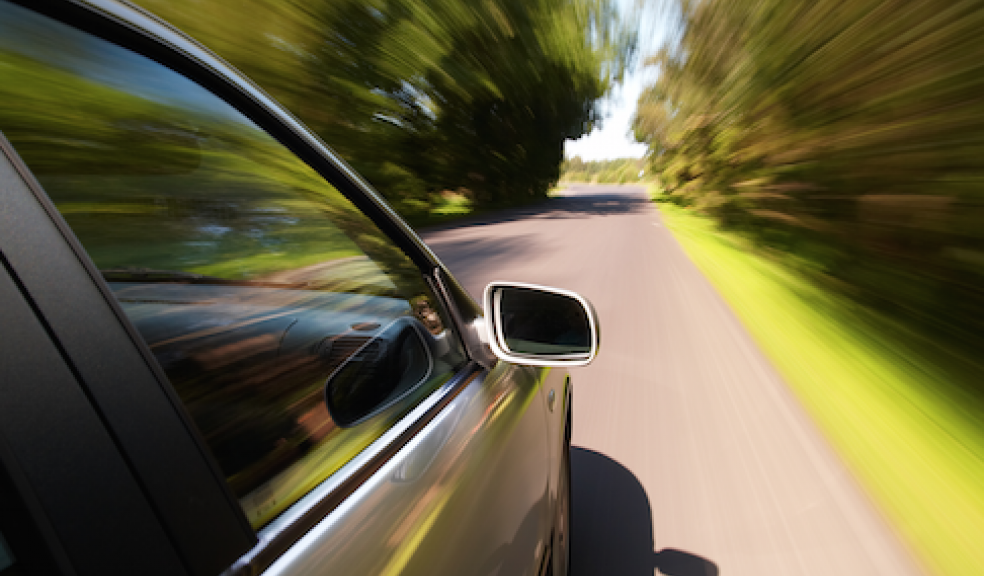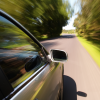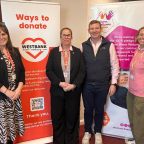
1 in 3 admit speeding on country roads
Drivers are being urged to slow down on country roads this summer to enable families, walkers, cyclists and horse riders to enjoy great British countryside, as a survey reveals that a huge proportion treat them like racetracks.
Results out today from road safety charity Brake and Digby Brown solicitors reveal one in three drivers (33%) admit driving too fast for safety on country roads, by speeding, taking bends fast or overtaking. Four in 10 (37%) have had a near-miss on country roads, while driving, walking or cycling.
Since there is less traffic on country roads, some drivers feel a false sense of security [1] and are prone to take risks like speeding, overtaking, and not slowing down for brows and bends.
In fact, per mile travelled, country roads are the most dangerous for all types of road user, with car occupants almost twice as likely to be killed on a country road than an urban road, motorcyclists more than twice as likely, and cyclists more than three times as likely [2]. In 2013, 895 people were killed on non-built up roads, up 1% on 2012, and 6,554 seriously injured [3].
Brake and Digby Brown's survey of 1,000 UK drivers also found:
One in five (19%) admit breaking speed limits on country roads in the past year
Three in 20 (15%) admit taking corners or brows too fast
One in 20 (5%) admit overtaking when it isn't safe
Three in 10 (28%) have been a passenger with a driver who broke the limit, one in five (19%) with a driver who took corners or brows too fast, and one in 12 (8%) with a driver who overtook when it wasn't safe.
Four in five (80%) think traffic is too fast for safety on some or most rural roads. Full results below.
Fast traffic on country roads not only puts lives at risk, it can also harm people's quality of life by preventing them from enjoying the countryside on foot or bike for fear of being hurt. Three quarters of those surveyed (76%) think country roads need to be safer for cyclists, walkers and horse-riders, and two in five say they would start cycling or cycle more (37%), or start walking or walk more (43%), if these roads were safer [4].
To cut crashes and empower people to enjoy the countryside, Brake is calling on government to lower limits on rural roads to a maximum of 50mph, and require authorities to implement lower limits where there are particular risks. The survey found widespread support for lower limits, with seven in 10 (72%) in favour of more 50, 40 and 30mph limits on country roads, and two thirds (65%) in favour of a 40mph default in national parks.
Brake is urging all drivers to stay well under current limits - bearing in mind 60mph is generally far too fast for safety on these roads - and slow right down for villages, bends, brows and bad weather, and avoid overtaking. Drivers should always assume that someone, or something, could be around any corner.
Julie Townsend, deputy chief executive, Brake, said: "We hear constantly from people in rural areas whose communities are blighted by fast traffic. It's a big issue over the summer when many people want to enjoy our beautiful countryside on foot, bike or horseback, and shouldn't have to contend with drivers treating the roads as their personal racetrack. Driving in this way is incredibly selfish and means people feel less able to get out and enjoy the countryside.
"People in rural communities and families visiting these areas this summer have a right to enjoy their surroundings without fearing for their safety. Country roads are not empty thoroughfares for traffic; they are living environments, full of unpredictable hazards around every twist and turn. We are urging drivers to slow right down on country roads this summer, especially for villages, bends, brows and bad weather, to respect the countryside and other people's right to enjoy it."
Milly Wastie, former chair of the National Federation of Young Farmers' Clubs, is backing Brake's Rural roads not racetracks campaign. Milly lost a friend to a crash on a country road when she was 17 and has campaigned and educated on road safety in rural areas ever since, including founding the NFYFC's Drive it Home campaign. She said:
"Country roads present many risks and hazards and you never know what might be around the corner, whether it be a cyclist, livestock, or slow moving farm machinery.
"By sticking well within the limit and reducing your speed as appropriate to the road conditions, you can ensure you are as prepared as possible to handle whatever situation is presented to you. I spend my life driving regularly along country lanes, and having lost a friend in a crash on such a road I want to encourage other road users to take their time, avoid needless risk-taking, and enjoy the countryside - please don't risk harming others."
Brake is also calling on the government to lower the default speed limit on our rural network from 60 to 50mph, and require local authorities to implement lower limits of 40, 30 and 20mph where there are particular risks, including 20mph in villages.
This must be coupled with wider traffic enforcement, including more speed cameras, especially average cameras, and investment in roads policing, as well as education warning of the dangers of speed and overtaking on rural roads to encourage compliance with lower limits.
Brake also calls for investment in far more traffic-free cycle and walking paths connecting rural communities, as well as frequent, cheap and well-marketed rural bus and train services, to discourage reliance on cars and encourage use of active travel and public transport.

















